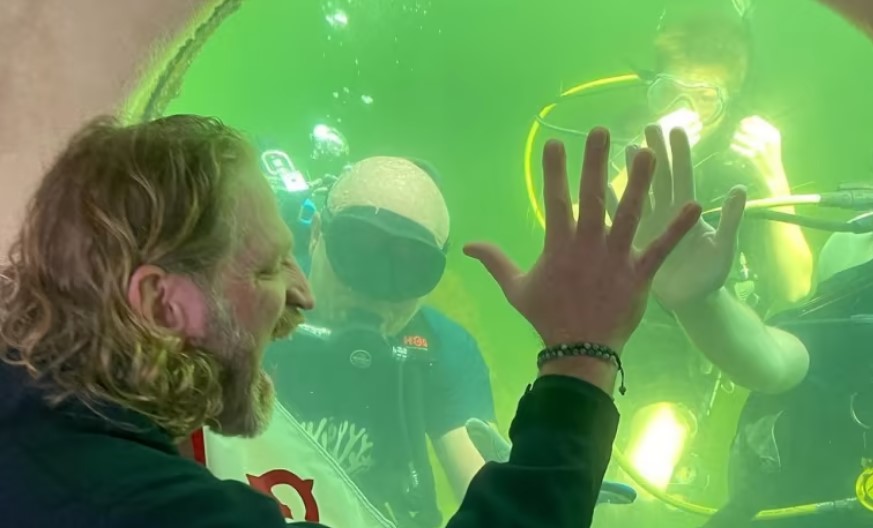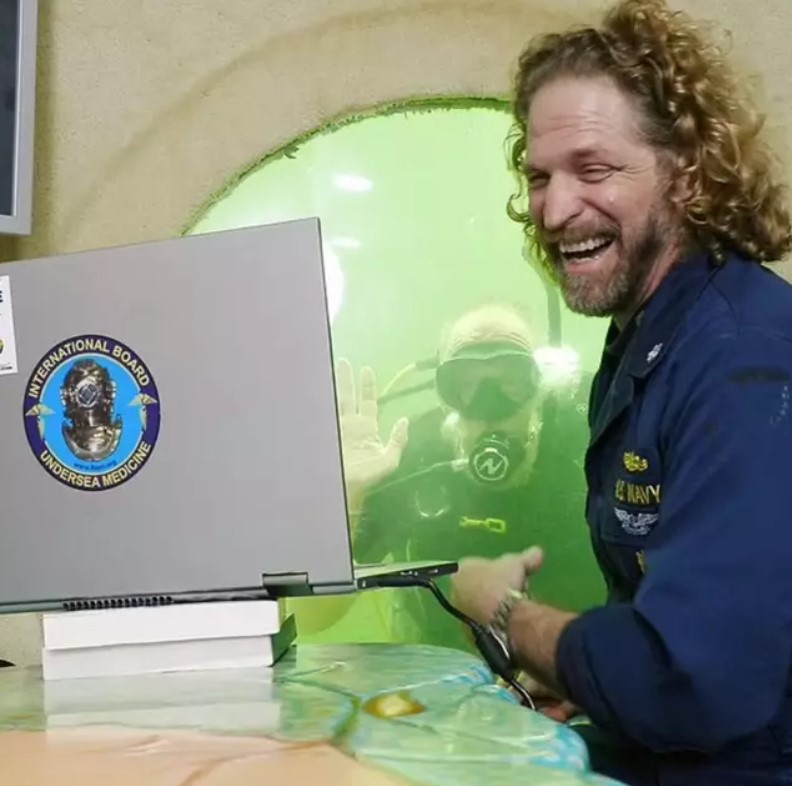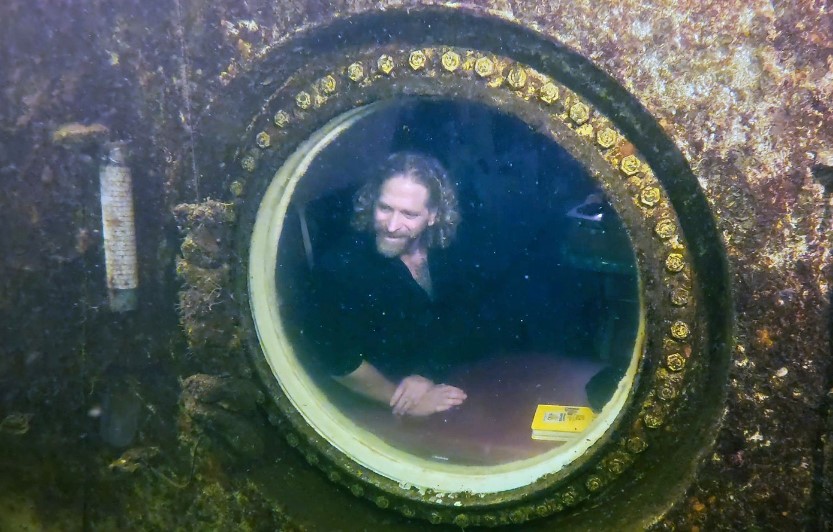
A man who made history by spending an unprecedented 100 days underwater recently revealed the negative effects of this extraordinary feat on his body.
Joseph Dituri, a former navy diver, shared his experiences and the challenges he faced during this record-breaking underwater adventure.

This adventurous individual, Joseph Dituri, has now come forward to discuss the negative effects that this prolonged underwater experience had on his body.
During his time submerged in a high-pressure bunker in the Atlantic Ocean, Dituri reported experiencing both positive and negative changes.

While he acknowledged the amazing health benefits he gained from being in the chamber, he also revealed some ongoing symptoms that he continues to face.
Upon his release from the bunker last June, Dituri noticed a noticeable height difference in his body.
He had actually shrunk by three-quarters of an inch, which he attributed to the effects of being in the chamber.
Additionally, he encountered dental issues, cracking a tooth during his underwater stay.
The diver explained that being underwater increases pressure, and in his case, it nearly doubled.

This immense pressure likely contributed to the change in his height. Interestingly, while astronauts tend to experience height growth in zero-gravity environments, Dituri's experience underwater was quite the opposite.
Despite these physical changes, Dituri expressed that the benefits he derived from his time in the ocean outweighed the negatives.
He claimed to have obtained astonishing anti-aging benefits from the underwater stint.

According to Dituri, his extrinsic (biological) age decreased from 44 to 34, indicating a lengthening of his telomeres. Telomeres, which shorten as the body ages, play a role in cell division and lifespan.
Upon returning to land, tests confirmed that Dituri's telomeres were longer than before he embarked on his underwater journey.
This suggests that his body underwent a self-healing process while submerged, leading to anti-aging effects.

The implications of these findings have excited scientists and researchers, although further research is still needed to understand the mechanisms playfully.




